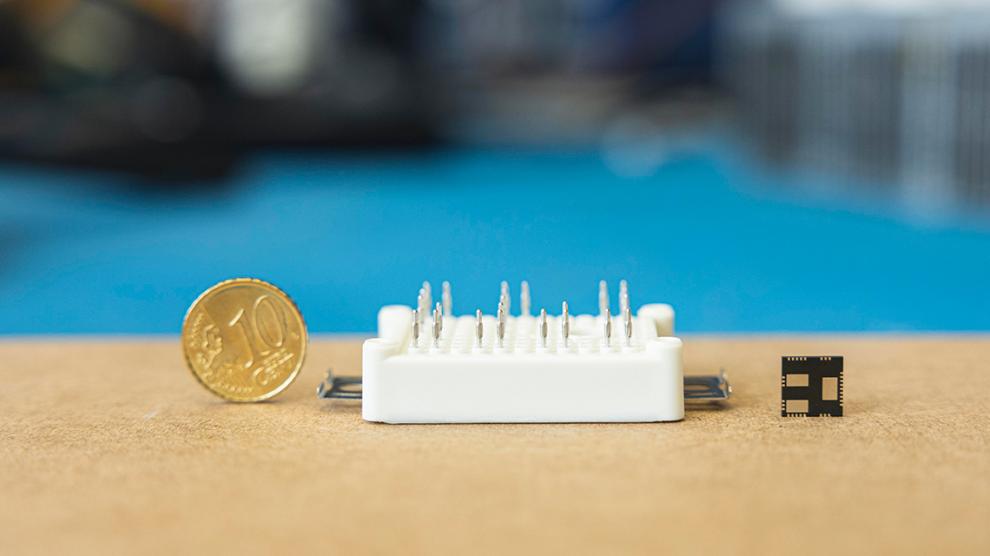RHODaS researchers have recently submitted a report on the development of Intelligent Power Modules with Integrated Sensors and Over Temperature Protection (OTP) / Over Current Protection (OCP) Circuits.

The core focus revolves around the design intricacies of power modules, integrated sensors, and fault tolerance algorithms. A critical aspect discussed is the meticulous selection process for suitable silicon carbide (SiC) and gallium nitride (GaN) devices for converters and details the chosen GaN and SiC semiconductors for both low and high-power converters with their specific characteristics. This research is vital in ensuring that the new power converters being developed by RHODaS are more efficient, smaller, lighter, and affordable.
The report sheds light on the crucial functionalities that the gate-driver circuit must encompass to ensure optimal protection for the converter. The selection process for appropriate drivers, considering their compatibility with desired functionalities, is clearly outlined for both low and high-power converters. Furthermore, the integration of sensors essential for implementing desired functionalities is highlighted, with a specific focus on temperature, current, and voltage sensors for high and low power converters.
The document also delves into an in-depth analysis of potential faults in semiconductors, addressing their causes and effects. To detect faults regardless of their origin, a sophisticated fault detection algorithm is proposed, leveraging the integrated sensors and driver protections. This algorithm has the capability to identify various semiconductor faults, setting the stage for future work on fault localisation.
In conclusion, the report signifies a successful design and implementation of power modules, offering valuable insights into sensor integration, semiconductor selection, and fault tolerance analysis. These findings significantly contribute to the overall progress and success of the RHODaS project, paving the way for advancements in intelligent power modules and enhanced system reliability.
The full report will be available on the RHODaS website’s Public Deliverables page soon.